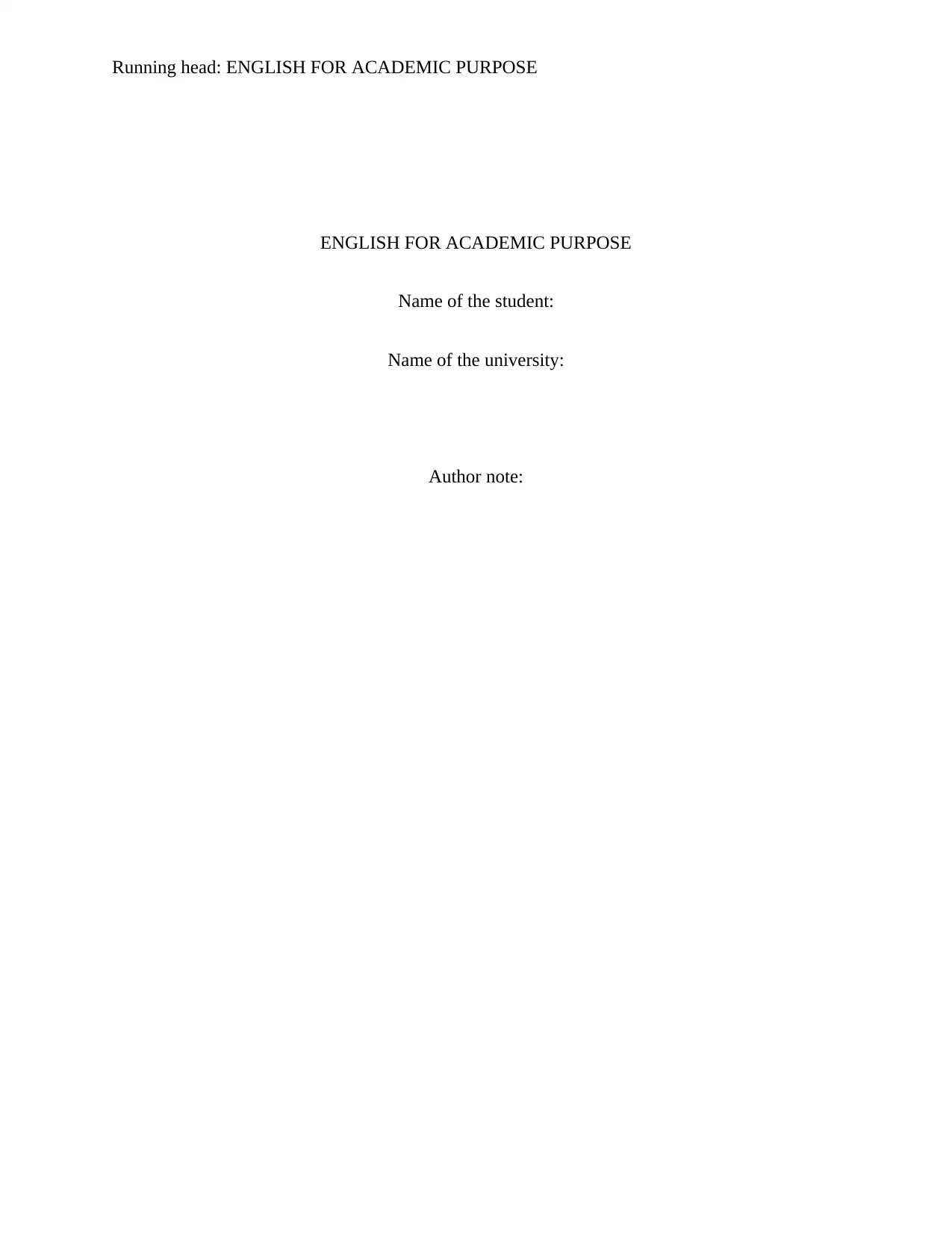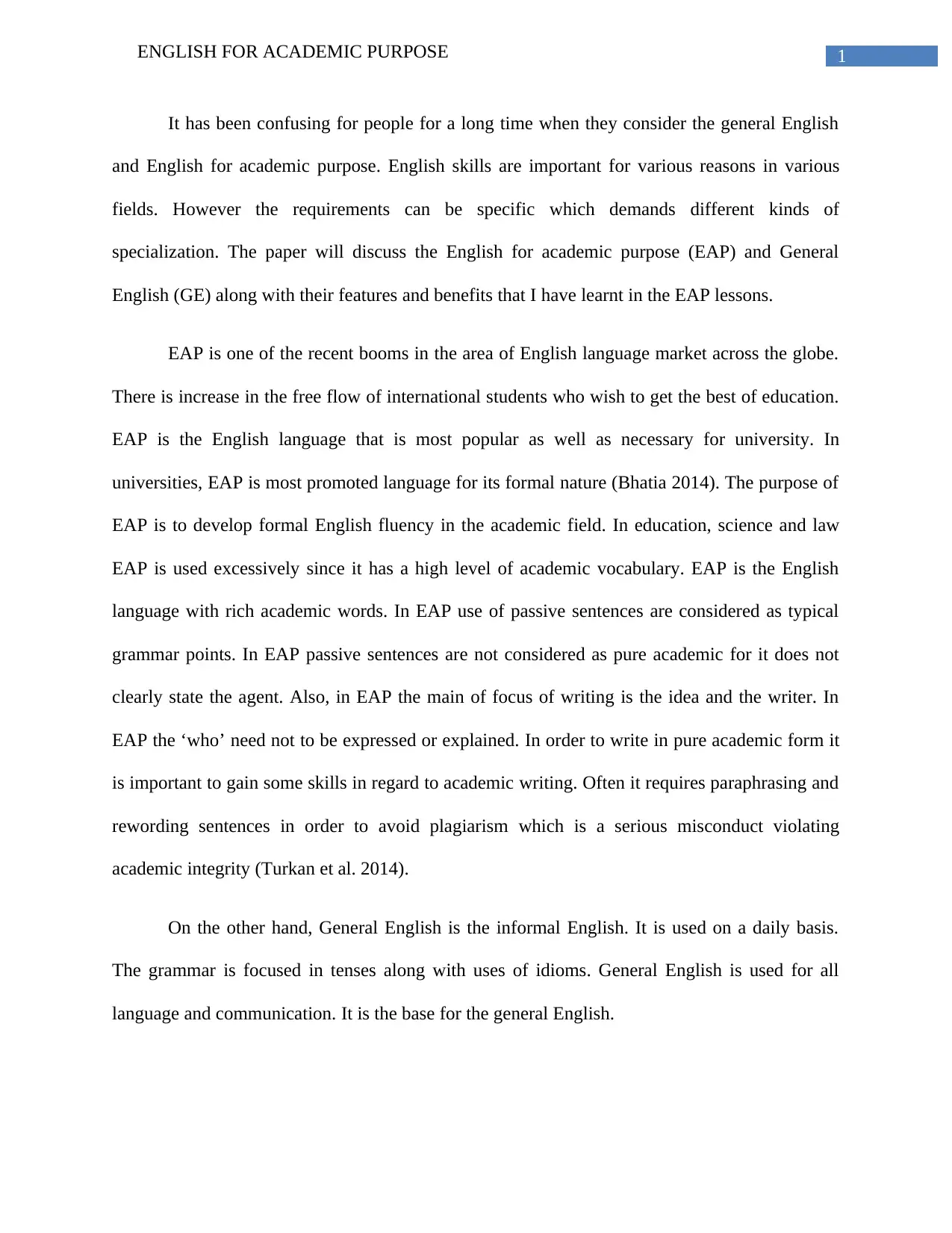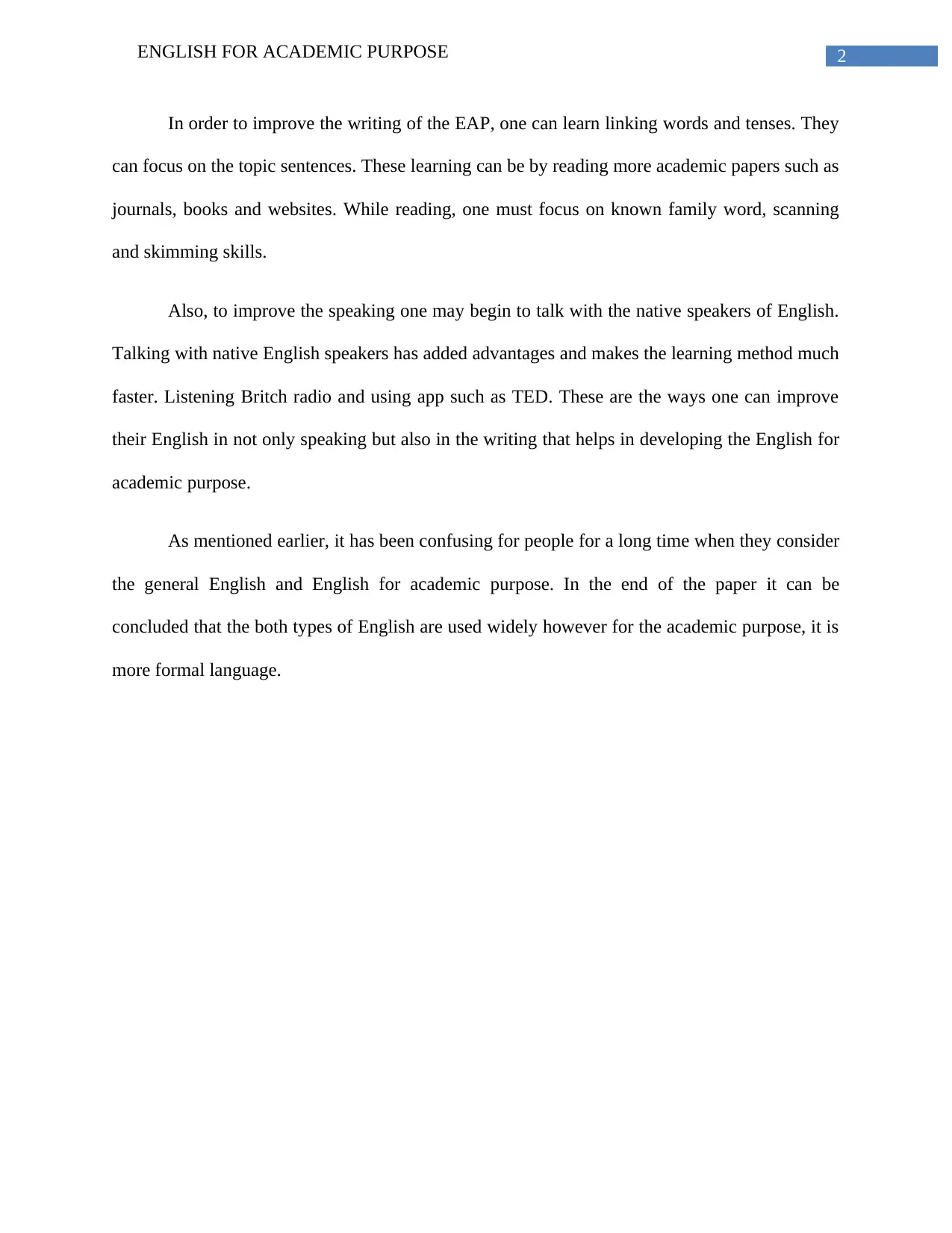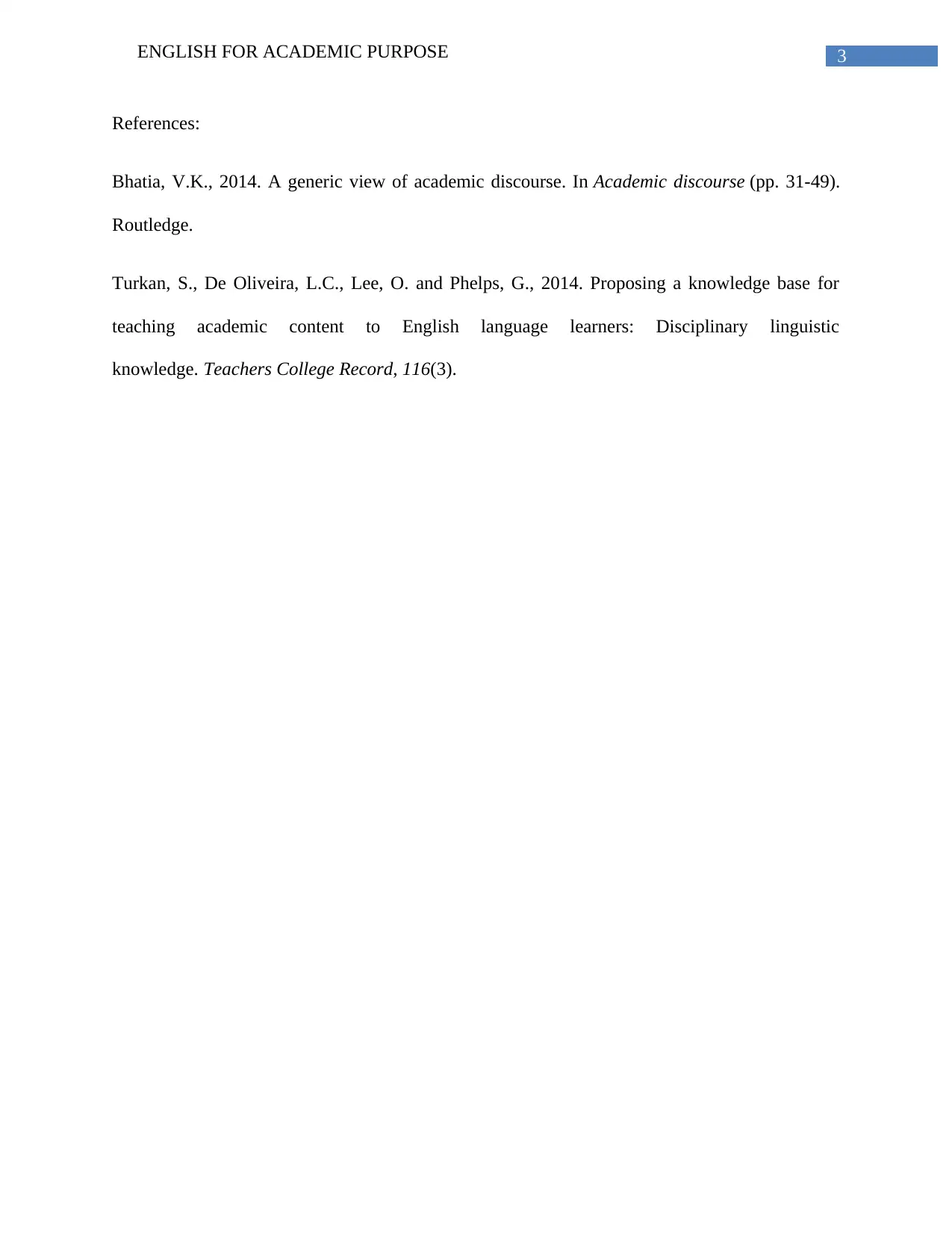An Analysis of English for Academic Purpose and General English
VerifiedAdded on 2023/03/17
|4
|655
|43
Essay
AI Summary
This essay explores the differences between English for Academic Purpose (EAP) and General English (GE). It highlights the formal nature, academic vocabulary, and specific grammar points (like passive sentences) of EAP, essential for university settings, especially in fields like education and science. The essay contrasts this with General English, which is informal and used daily, focusing on tenses and idioms. It also discusses methods to improve EAP writing skills, such as learning linking words, tenses, and reading academic papers, and enhancing speaking skills through interactions with native speakers and listening to resources like British radio and TED talks. The essay concludes by summarizing the distinctions and emphasizing the importance of both types of English in different contexts.
1 out of 4











![[object Object]](/_next/static/media/star-bottom.7253800d.svg)